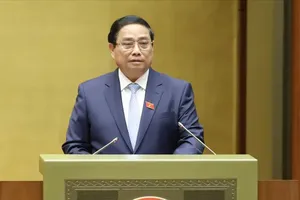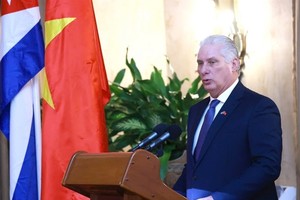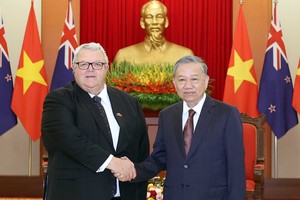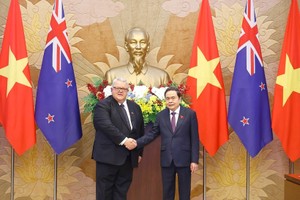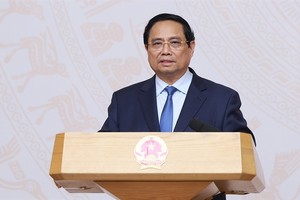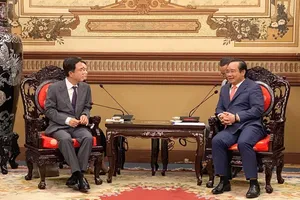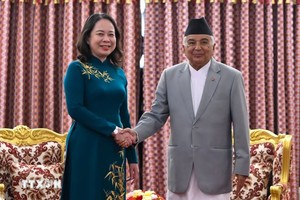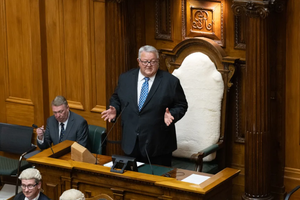BERLIN (AFP) – Germany on Monday became the first major industrialised power to agree an end to nuclear power in the wake of the disaster in Japan, with a phase-out due to be completed by 2022.
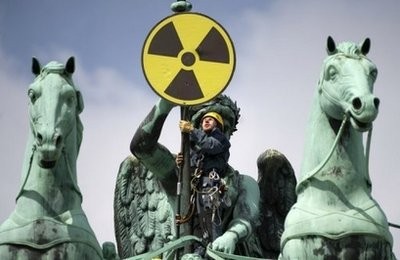
Environment Minister Norbert Roettgen announced the decision early Monday by the centre-right coalition, which was prompted by the crisis at Japan's Fukushima plant, calling it "irreversible".
"After long consultations, there is now an agreement by the coalition to end nuclear energy," he told reporters after seven hours of negotiations into the small hours at Chancellor Angela Merkel's offices.
"This decision is consistent, decisive and clear."
Germany has 17 nuclear reactors on its soil, eight of which are currently off the electricity grid.
Seven of those offline are the country's oldest nuclear reactors, which the federal government shut down for three months pending a safety probe after the emergency at Fukushima that began in March.
The eighth is the Kruemmel plant, in northern Germany, which has been mothballed for years due to repeated technical problems.
Monday's decision made Germany the first major industrial power to announce plans to give up atomic energy entirely.
But it also means that the country will have to find the 22 percent of its electricity needs currently covered by nuclear reactors from another source.
Roettgen insisted there was no danger of blackouts.
"We assure that the electricity supply will be ensured at all times and for all users," he pledged, but did not provide details.
Already Friday, the environment ministers from all 16 German regional states had called for the temporary moratorium on the seven plants to be made permanent.
Roettgen said Monday that none of the eight reactors offline would be reactivated. Six further reactors would be shut down by the end of 2021 and the three most modern would cease operation by the end of 2022.
Monday's decision is effectively a return to the timetable set by a previous Social Democrat-Green coalition government a decade ago.
And it is a humbling U-turn for Merkel, who at the end of 2010 decided to extend the lifetime of Germany's 17 reactors by an average of 12 years, which would have kept them open until the mid-2030s.
That decision was unpopular in Germany even before the earthquake and tsunami in March that severely damaged the Fukushima facility, which sparked mass anti-nuclear protests and prompted Merkel's energy policy review.
Her zig-zagging on what has been a highly emotive issue in the country since the 1970s has cost her since at the ballot box.
Merkel herself has blamed the Fukushima catastrophe for recent state election debacles.
In the latest, on May 23, the anti-nuclear Greens pushed her Christian Democrats (CDU) into third place in a vote in the northern state of Bremen, the first time they had scored more votes than the conservatives in a regional or federal election.
Environmental pressure group Greenpeace welcomed the plans for a nuclear shutdown but lamented it would take until 2022.
Industrial giant Daimler warned it would undermine Germany's standing as Europe's top economy.
"I see certain risks for Germany as a place to do business," chief executive Dieter Zetschke told the daily Bild, adding that he saw the decision as "strongly coloured by emotions".
"Turning our backs on an affordable energy supply is clearly a risk."
Some coalition members had called for a built-in revision clause which could have seen the decision revisited, but this was thrown out in the final round of negotiations.
Roettgen said the government had largely followed the recommendations of an "ethics panel" appointed by Merkel after the Fukushima disaster, which said it was possible to end nuclear power in Germany within a decade.
The Fukushima accident has sparked a renewed global debate about the safety of nuclear power, with widely differing opinions.
The United States and Britain have announced plans to build new reactors as a means of reducing harmful greenhouse gas emissions while ensuring a relatively cheap supply of energy.

